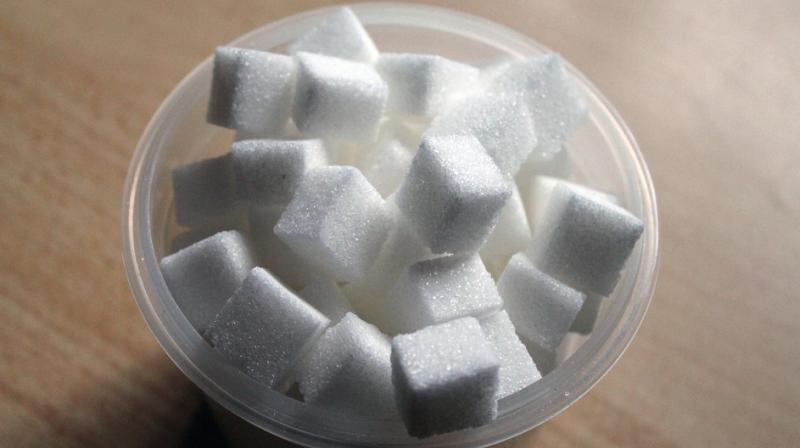Here's why cancer patients should stay away from excess sugar
Cancer cells usually grow quickly, multiplying at a fast rate, which takes a lot of energy, which means they need lots of glucose.

A simple online search throws up a lot of complicated gibberish on the relationship shared between sugar and cancer, with many places calling sugar 'white death' or even 'cancer's favourite food.'
However, experts believe that people are actually over-simplifying a complicated biological process.
According to an article publsihed in Scienceblog, sugar comes in many different forms of which the simplest form is just as a single molecule known as glucose and fructose. These molecules of simple sugars can also stick together, either in pairs or as longer chains of molecules. All of these combinations of molecules are carbohydrates, and are our body’s main source of energy.
The article further states that cancer cells usually grow quickly, multiplying at a fast rate, which takes a lot of energy. This means they need lots of glucose. However, cancer cells also need lots of other nutrients too, such as amino acids and fats; it’s not just sugar they crave.
The research further found that although there’s no evidence that cutting carbohydrates from diet will help treat cancer, understanding the abnormal ways that cancer cells make energy could lead to new treatments. This was further proved by going back to a study from the 50s, where, a scientist called Otto Warburg noticed that cancer cells use a different chemical process from normal cells to turn glucose into energy.
And while cutting out sugar doesn’t help treat cancer, there is an indirect link between cancer risk and sugar. Eating lots of sugar over time can cause weight gain, have acidic reactions, reduce immunity among others. Robust scientific evidence shows that being overweight or obese increases the risk of 13 different types of cancer.
Here are ways sugar and cancer are linked,
Affinity: Cancer cells love sugar! That is why refined carbohydrates like white sugar, white flour, high fructose corn syrup (HFCS) and soft drinks are extremely dangerous for anyone trying to prevent or reverse cancer. Cancer cells uptake sugar at 10-12 times the rate of healthy cells. In fact, that is the basis of PET (positron emission tomography) scans -- one of the most accurate tools for detecting cancer growth. PET scans use radioactively labeled glucose to detect sugar-hungry tumor cells. When patients drink the sugar water, it gets preferentially taken up into the cancer cells and they light up!
Acidity: Otto Warburg, a German scientist found that cancers thrive in an acidic environment. Sugar is highly acidic. With a pH of about 6.4, it is 10 times more acidic than the ideal alkaline pH of blood at 7.4.
Immunity: Sugar suppresses a key immune response known as phagocytosis. Consuming 10 teaspoons of sugar can cause about a 50% reduction in phagocytosis. Not only the amount of sugar, but also the frequency of ingesting sugar is relevant to immune function. In one study, research subjects were found to have nearly a 38% decrease in phagocytosis one hour after ingesting a moderate amount of sugar.
Activity: In most people, when sugar in any form is consumed, the pancreas releases insulin. Breast tissue, for example, contains insulin receptors, and insulin is a powerful stimulant of cell growth. One group of Australian researchers concluded that high levels of insulin and insulin-like growth factor (IGF) may actually be causative of cancers of the breast, prostate, endometrium and pancreas. A broad study conducted in 21 countries in Europe, North America and Asia concluded that sugar intake is a strong risk factor contributing to higher breast cancer rates
Obesity: Sugar ingestion seriously contributes to obesity, a known cause of cancer. Obesity also negatively affects survival. More than 100,000 cases of cancer each year are caused by excess body fat, according to the American Institute for Cancer Research. These include esophageal, pancreatic, kidney, gallbladder, breast and colorectal cancer.

